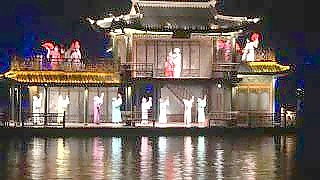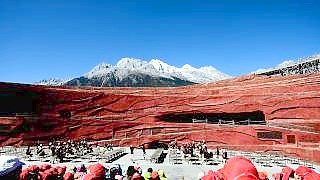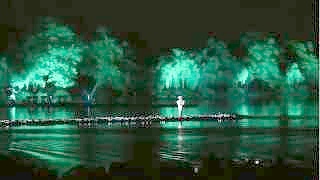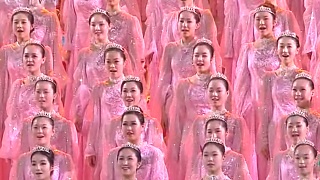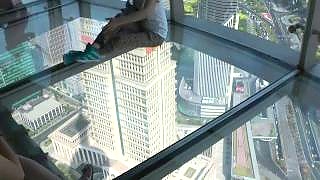
|
Mountain Hiking Trips in China
Huangshan 黄山 (Huángshān): Embark on an unforgettable journey to the Yellow Mountain, known for its dramatic peaks, deep valleys, and mystical beauty. Huangshan is a UNESCO World Heritage Site and has inspired countless poets and artists with its ethereal landscapes. Visitors can hike along scenic trails lined with ancient pine trees, explore hidden caves and waterfalls, and witness breathtaking views of the sea of clouds that often shroud the peaks.
Emei Mountain 峨眉山 (Éméishān): Explore one of the Four Sacred Buddhist Mountains of China, known for its stunning scenery, ancient temples, and diverse wildlife. Emei Mountain is home to the majestic Golden Summit, where visitors can watch the sunrise over a sea of clouds and admire the towering statue of Samantabhadra. Along the way, hikers can encounter playful monkeys, explore serene forests, and visit historic Buddhist monasteries.
Jiuhua Mountain 九华山 (Jiǔhuáshān): Discover the beauty and tranquility of Jiuhua Mountain, one of the Four Sacred Buddhist Mountains of China. Jiuhua Mountain is renowned for its sacred temples, including the Tiantai Temple and the Huacheng Temple, which house ancient Buddhist relics and offer stunning panoramic views of the surrounding landscape. Visitors can hike through lush forests, meditate in serene meditation halls, and immerse themselves in the spiritual atmosphere of this sacred mountain.
Wudang Mountain 武当山 (Wǔdāngshān): Explore the birthplace of Wudang Kung Fu and the ancient Taoist culture at Wudang Mountain. This UNESCO World Heritage Site is famous for its magnificent ancient buildings, including the Golden Hall, the Purple Cloud Palace, and the Nanyan Temple. Visitors can practice Tai Chi in the peaceful surroundings, hike through scenic valleys and forests, and explore the rich cultural heritage of this historic mountain.
Mount Tai 泰山 (Tàishān): Ascend the sacred Mount Tai, known as the "Eastern Mountain of the Five Sacred Mountains." Mount Tai has been a place of worship and pilgrimage for thousands of years and is renowned for its breathtaking natural beauty and cultural significance. Visitors can climb the 7,000 steps to the summit, visit ancient temples and shrines, and admire panoramic views of the surrounding landscape from the Jade Emperor Peak.
Mt. Hua 华山 (Huàshān): Challenge yourself with a trek up the steep and rugged trails of Mount Hua, one of China's Five Great Mountains. Known for its precipitous cliffs, narrow plank paths, and breathtaking vistas, Mount Hua offers a thrilling adventure for hikers and outdoor enthusiasts. Visitors can hike to the famous Chess Pavilion, brave the spine-tingling plank walk along the cliff face, and enjoy panoramic views from the mountain's five peaks.
Mount Gongga 贡嘎山 (Gònggǎshān): Explore the "King of Sichuan Mountains," known for its stunning glaciers, alpine lakes, and diverse ecosystems. Mount Gongga is one of the highest peaks in the Hengduan Mountains and offers spectacular scenery and challenging trekking opportunities. Visitors can trek through pristine wilderness, climb to high mountain passes, and enjoy panoramic views of the surrounding peaks, including the iconic Minya Konka.
Haba Snow Mountain 哈巴雪山 (Hābā Xuěshān): Discover the rugged beauty of Haba Snow Mountain, located on the eastern edge of the Tibetan Plateau. Haba Snow Mountain is known for its dramatic landscapes, including towering peaks, deep gorges, and cascading waterfalls. Visitors can trek through alpine meadows adorned with colorful wildflowers, cross suspension bridges over rushing rivers, and summit the snow-capped peak for breathtaking views of the surrounding landscape.
Jade Dragon Snow Mountain 玉龙雪山 (Yùlóng Xuěshān): Explore the stunning landscapes of Jade Dragon Snow Mountain, known for its towering peaks, deep gorges, and alpine meadows. Jade Dragon Snow Mountain is part of the UNESCO World Heritage-listed Three Parallel Rivers of Yunnan Protected Areas and is home to a rich diversity of flora and fauna. Visitors can take a cable car ride to the summit, hike along scenic trails, and admire the views of the famous "13 peaks."
Mt. Siguniang 四姑娘山 (Sìgūniángshān): Journey to the "Four Sisters Mountains," known for their towering peaks, alpine lakes, and pristine forests. Mount Siguniang is located in the heart of the Qionglai Mountains and is part of the UNESCO World Heritage-listed Sichuan Giant Panda Sanctuaries. Visitors can trek through scenic valleys, visit Tibetan villages, and admire the stunning beauty of the snow-capped mountains, including the four distinct peaks that give the mountain its name.
|
 The Road Home (movie extract)
The Road Home (movie extract)



